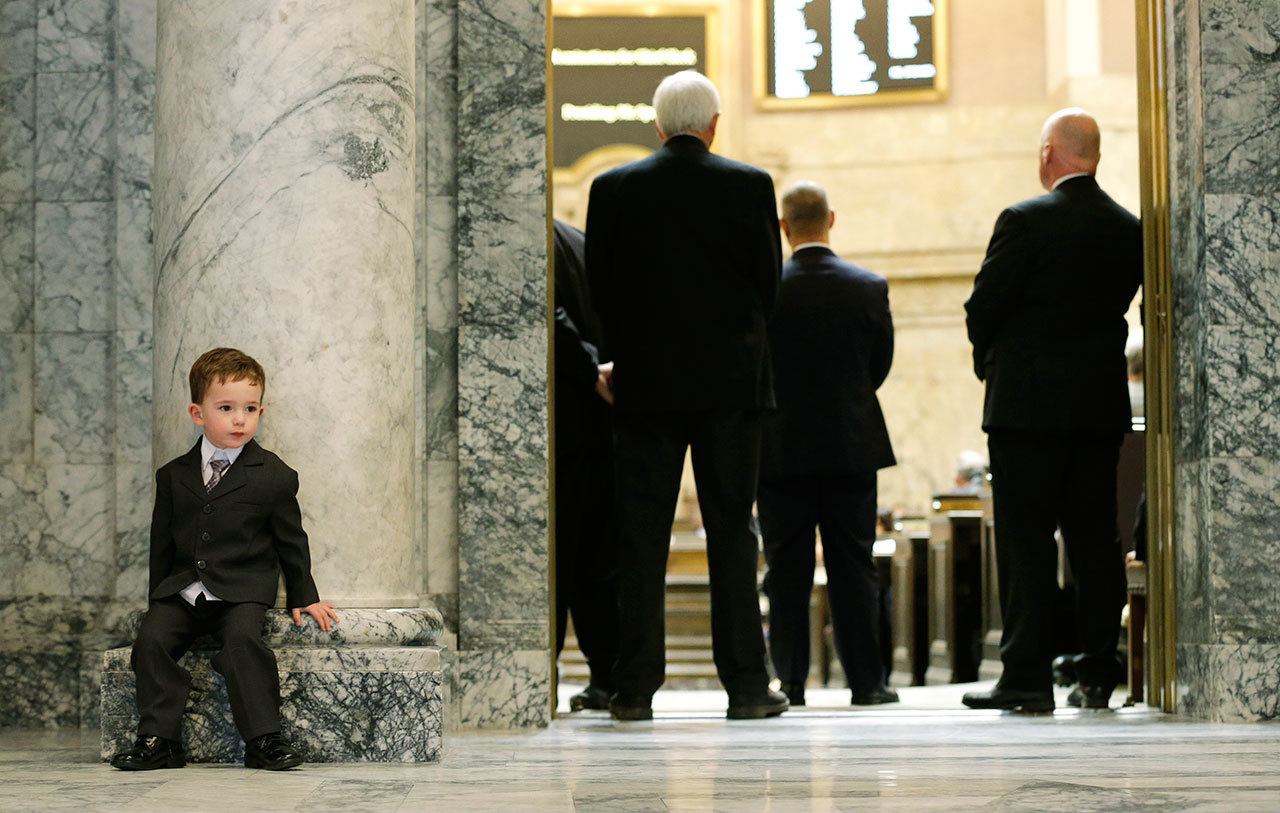By Rachel La Corte
and Alexis Myers
The Associated Press
OLYMPIA — As state lawmakers officially convened their 105-day legislative session Monday, a task force charged with finding recommendations for the long-running challenge of complying with a court mandate on education funding failed to provide a bipartisan proposal.
The Education Funding Task Force — created last year with the goal of coming up with recommendations to fully fund K-12 education — voted Monday on both Republican and Democratic proposals, but party line votes led to a 4-4 tie.
“We’ve set the Legislature up for not meeting the requirements that we set for ourselves last year, and that is something to hold us accountable for,” said Democratic Sen. Christine Rolfes, a member of the task force.
Lawmakers are working to comply with a 2012 state Supreme Court ruling that they must fully fund the state’s basic education system. Lawmakers have already put more than $2 billion toward the issue since the ruling, but the biggest piece remaining of the court order is figuring out how much the state must provide for teacher salaries. School districts currently pay a big chunk of those salaries with local property-tax levies.
After nearly seven months of meetings, Monday marked the final hearing of the task force, though lawmakers will continue to work and try to find a solution as each chamber prepares to release its own plan for the next two-year budget. Republicans in the Senate will release their proposal first, followed by Democrats in the House.
Republican Rep. Paul Harris said the Republican caucuses “are still crunching numbers.”
“I believe the court will hold us accountable for whatever we put into this report,” Harris said. “I think it is important that we get the information right.”
The plan put forth by Democrats on the task force had estimated that the state will need to spend more than $7 billion over the next four years on schools.
While the Democrats’ plan didn’t offer specifics on how to pay for it, it noted several potential sources of revenue, including closure of tax exemptions, changes to the state property and business and occupation taxes and a new capital gains tax.
Republicans’ “Guiding Principles” plan didn’t include a projection on costs, but a statement that education should be funded first, “before other priorities of government.”
The court has said that the state has until Sept. 1, 2018, to fully fund education, but that the details of how to do that — as well as how lawmakers will pay for it — must be in place before the Legislature adjourns this year.
As the House and Senate gaveled into order, lawmakers noted the focus is firmly on education.
“There will be many important issues for us to take into consideration,” House Speaker Frank Chopp, D-Seattle, told the House chamber. “But this year, providing full funding of basic education is imperative. Our young people are depending on us to get the job done.”
House Republican Leader Dan Kristiansen said that the voters who sent them to Olympia expect them to put the people of the state before the interests of special interest groups or lawmakers’ personal goals.
“Now it’s time to govern,” he said.

